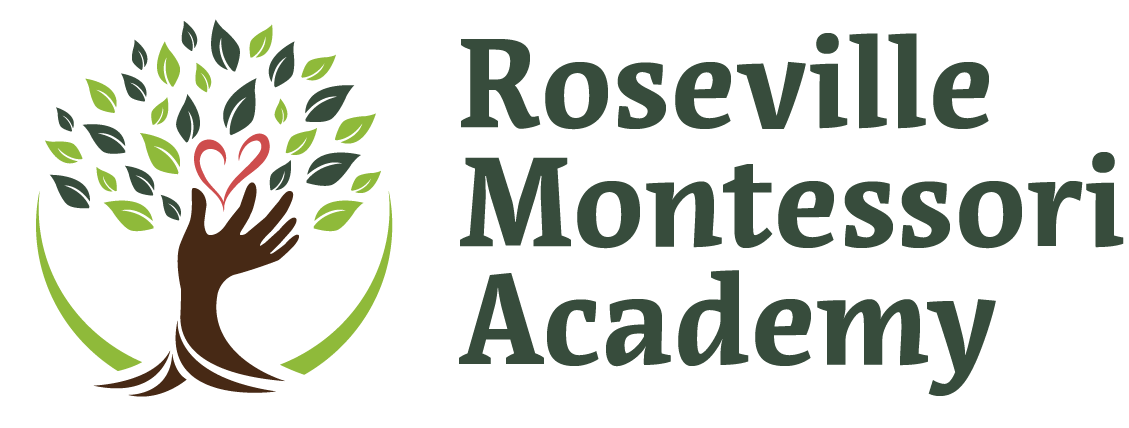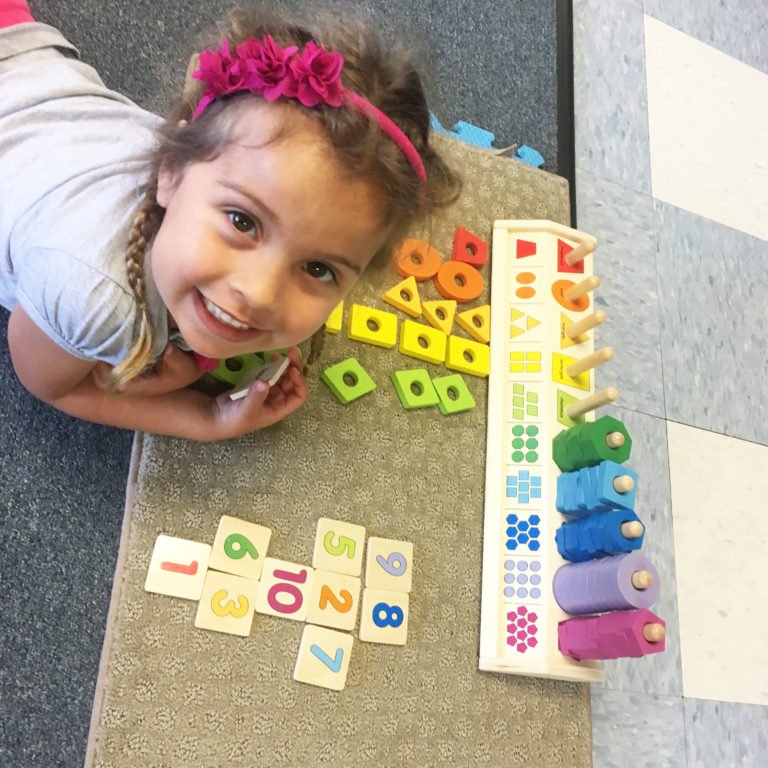Curriculum
Our Montessori coursework is thorough and thoughtfully prepared. The curriculum covers both traditional academic subjects such as mathematics, language, science, art, and geography, as well as subjects unique to the Montessori philosophy, including practical life and sensorial activities. The materials and activities provided in our Montessori environment are arranged in the classroom by the following subjects:
Practical Life
Montessori Practical Life exercises and materials help children understand the importance of taking care of themselves, and their indoor and outdoor environment. These exercises also help children develop independence, concentration, hand-eye coordination, sense of order, confidence, fine motor skills, coordination of movement, and self-esteem.
Sensorial
The Sensorial materials provide the first introduction to the refinement of all senses, differentiation between size, height, width, and breadth dimensions, colors, as well as geometric shapes. These activities develop and refine the 5 senses – seeing, hearing, touching, tasting and smelling. The sensorial activities build a foundation for speech, writing and math.
Mathematics
Manipulative materials and exercises in the area of Math will help the child to grasp the concepts of numeration, place value, addition, subtraction, multiplication, division, fractions, money, time and introduce the decimal system. Mathematics involves shapes, spaces, numbers, and their relationship and attributes by the use of numerals and symbols. Montessori math includes a study of the science of patterns, such as numerical patterns, abstract patterns, and patterns of shape and motion.
Language Arts
Enriching the vocabulary of children expands their capacity to clearly communicate with others and fully express themselves. Once children are better able to express themselves, their personality begins to truly surface and shine. All subject areas of the Montessori classroom are integrated into the total development of language; from listening to stories, expressing ideas and experiences, and creative writing. The students learn to read by developing awareness of phonetic sound isolation, and through the use of the Montessori phonogram language system.
Foreign Language
Spanish education is implemented daily in every class for varying lengths of time depending on the age of the students. The Spanish program focuses on acquiring listening, speaking, reading and writing skills, while laying a strong foundation for fluency.
Culture
The world is a child’s classroom. Children are very interested to learn about the world in which they live. Culture lessons begin with an introduction of our solar system, our planet, the components of our physical world, geology and history, and geography. The Montessori classroom also provides information encompassing botany, earth and physical science, zoology, art and music.
Music
Daily music is an integral part of self-expression in the Montessori classroom. Students practice concepts of rhythm, tempo, and melodic direction through a number of fun activities such as group and individual singing, dance, and rhythm instrument-playing.
Art
The art program is integrated into regular Montessori exercises. The students learn basic skills such as cutting with scissors, painting, drawing, while exploring their own artistic expression using different instruments and methods. The goals of art in the classroom setting is to encourage the child to express their thinking, knowledge and ideas; explore, try out, and create with new and different kinds of media; experiment with colors, lines, forms, shapes, textures, and designs; express feelings and emotions; and be creative.
Physical Education
When children engage in physical activity, they are innately aware of their personal health and fitness. Students enjoy physical education and outdoor activities on our play structures and expansive acreage of green grass. Students are given the opportunity to demonstrate their achievements in motor development, movement, and introduction to organized games and sports.
Gardening
More than a seed is planted in a garden. Children can learn not just about how natural systems work in a garden—what critters and plants live where and what they need to survive, but also about themselves. Helping plan, plant and tend a garden can cultivate attributes and life skills such as responsibility, independence, leadership empathy/caring, patience, teamwork and problem solving.
Our students feel a sense of pride in our school gardening efforts. Being interested in what is grown in the garden compels the children to be more willing to try the fruits of their labor. Half of our plates should be filled with fruits and vegetables. Eating fruits and vegetables may be a struggle at home, but with school gardening, it connects the children to the food. The entire gardening process is a journey of discovery for our children. What better place to expose a better diet for their futures than by planting, growing, harvesting and eating their own food.
Environment
In the safe and empowering Montessori environment, students find joy in learning.
Beautiful, inviting, and thoughtfully arranged, our classrooms embody each element of Maria Montessori’s method of scholastic guidance.
Natural lighting, soft colors, and uncluttered spaces set the stage for activity that is focused and calm. Learning materials are displayed on accessible shelves, fostering independence as our students go about their work. Everything is where it is supposed to be, conveying a sense of harmony and order that both comforts and inspires.








